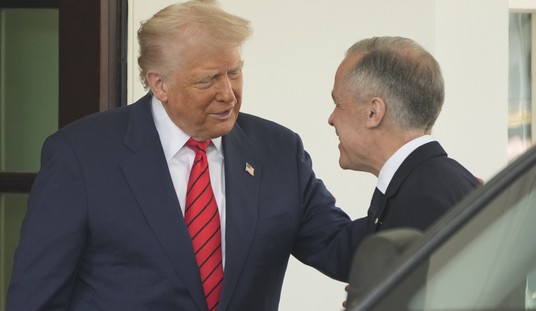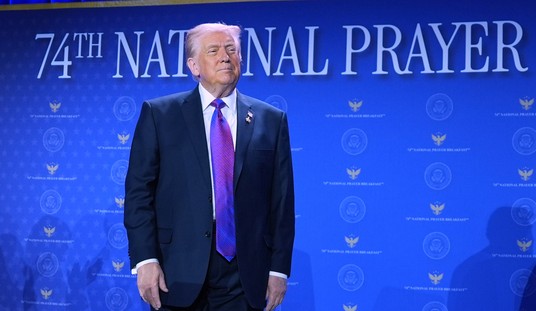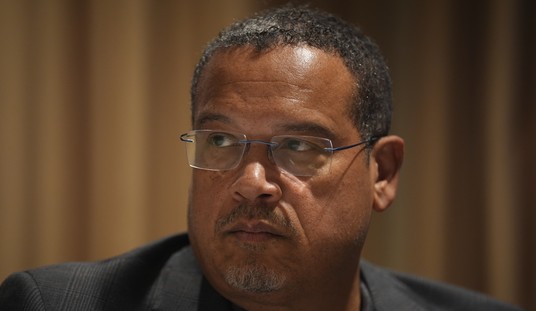The US fought for years to free Anbar province from the grip of al-Qaeda during the Iraq War. Fallujah and Ramadi turned into pitched battlefronts, and later “the surge” convinced local Sunni tribes to join the US effort to dispel AQ from the region. More than two years after the US pulled all of its forces out of Iraq, AQ is back — and Ramadi and Fallujah appear to have fallen once again:
http://www.youtube.com/watch?v=jz2TQTu_RqY
The city center of Iraq’s Fallujah has fallen completely into the hands of fighters from the al-Qaida-linked Islamic State in Iraq and Levant, police said Saturday, Jan. 4, yet another victory for the hardline group that has made waves across the region in recent days.
ISIL is also one of the strongest rebel units in Syria, where it has imposed a strict version of Islamic law in territories it holds and kidnapped and killed anyone it deems critical of its rule. Also on Saturday, it claimed responsibility for a suicide car bombing in a Shiite-dominated neighborhood in Lebanon.
Hadi Razeij, head of the Anbar province police force, said police had left the city center entirely and had positioned themselves on the edge of town.
“The walls of the city are in the hands of the police force, but the people of Fallujah are the prisoners of ISIL,” he said, speaking on Arabic language satellite broadcaster al-Arabiya.
The US, which is still at war with al-Qaeda under the terms of the October 2001 Authorization to Use Military Force (AUMF), and who has allied with the government in Baghdad, wants to help “in any way possible,” Secretary of State John Kerry announced this weekend. That is, any way that doesn’t involve fighting al-Qaeda in Iraq:
Secretary of State John F. Kerry said Sunday that the United States is ready to help Iraq in any way possible as that country began a major offensive to wrest control of two cities from al-Qaeda-linked militants. But he made it clear that no American troops would be sent in.
Kerry described the militants from the Islamic State of Iraq and Syria, or ISIS, as “the most dangerous players” in the region. But as Iraqi forces launched airstrikes and clashed with the militants in western Anbar province on Sunday, Kerry said it was Iraq’s battle to fight. …
“This is a fight that belongs to the Iraqis,” Kerry said toward the end of a visit to Jerusalem. “We are not, obviously, contemplating returning. We are not contemplating putting boots on the ground. This is their fight, but we’re going to help them in their fight.”
Kerry didn’t give details of what assistance the United States might provide but said it would do “everything that is possible.” After Maliki appealed in November for more U.S. support in fighting extremists, Washington sent 75 Hellfire missiles and promised to dispatch drones.
It’s worth pointing out that the same group has upended Barack Obama’s Syrian policy, too. Both could have been avoided had the US worked out an extension of the security agreement that kept American troops on the ground in Iraq to deal with al-Qaeda. Then-Secretary of Defense Robert Gates fully expected that to happen, and so did Leon Panetta. Even Nouri al-Maliki expected the Americans to stay, or return almost immediately after the withdrawal two years ago.
Instead, both Obama and Joe Biden twiddled their thumbs and ended up with no position at all in Iraq. Not surprisingly, the vacuum left in western Iraq allowed al-Qaeda to regroup, and then attempt to destabilize both Iraq and Syria. Instead of stamping out the cancer, we let it metastasize again, this time more virulently than before.
That’s not to say that Kerry isn’t doing anything. He’s, er, inviting Iran to expand its influence in the region:
The Obama administration opened the door for the first time Sunday to Iranian participation at the Syrian peace talks in Switzerland later this month.
Softening the former hard line against any role for Iran if it refuses to endorse the Jan. 22 conference ground rules, Secretary of State John F. Kerry suggested that Iran might be able to participate from the sidelines.
“Could they contribute from the sidelines? Are there ways for them conceivably to weigh in?” Kerry said of the Iranians, who oppose the conference’s goal of establishing a transitional government in Syria, its ally and neighbor.
Kerry suggested that Iran’s diplomatic office in Geneva might be able to help as an unofficial participant.
Smart power.








Join the conversation as a VIP Member